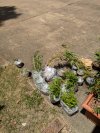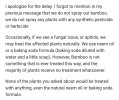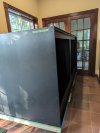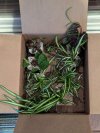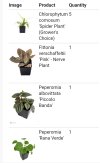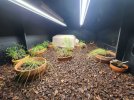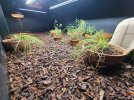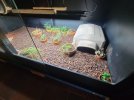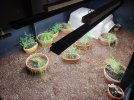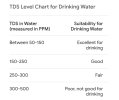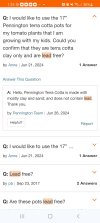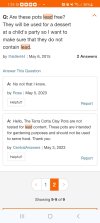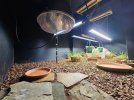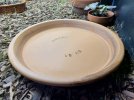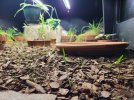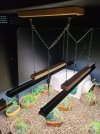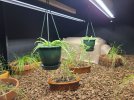So... progress is being made on the enclosure. I should have lights/heating ordered soon; this design has undergone multiple revisions since the weekend. I'm talking with Bob of Pro Products (about radiant heat panel), and members of the Reptile Lighting FB group.
These fixtures are important, but I also need sensors (humidity and temperature) for both reptile enclosures. My boxie has several temp probes in/around her tank, but humidity is just being inferred since I discontinued use of reptile fogger (with bundled hydrometer). We don't have a laser temp gun... yet.
Based on what I've read here (and elsewhere on the interwebs), it seems like SensorPush brand products are my best option for remote humidity and temperature monitoring.
EtekCity brand (which I'm already familiar with from digital scale purchase) Lasergrip 1260 is one of the better laser temp guns, and I see earlier models being recommended by knowledgeable people on this forum. Do the contents of my shopping cart pass muster, or have I overlooked something?
These fixtures are important, but I also need sensors (humidity and temperature) for both reptile enclosures. My boxie has several temp probes in/around her tank, but humidity is just being inferred since I discontinued use of reptile fogger (with bundled hydrometer). We don't have a laser temp gun... yet.
Based on what I've read here (and elsewhere on the interwebs), it seems like SensorPush brand products are my best option for remote humidity and temperature monitoring.
EtekCity brand (which I'm already familiar with from digital scale purchase) Lasergrip 1260 is one of the better laser temp guns, and I see earlier models being recommended by knowledgeable people on this forum. Do the contents of my shopping cart pass muster, or have I overlooked something?
Attachments
Last edited:


